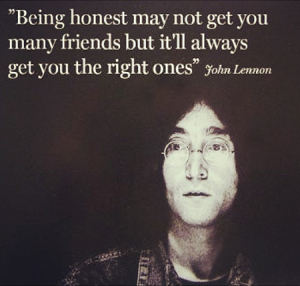by Sally Kempton, originally published here in Yoga Journal
 There’s an old joke about two American Mafia enforcers who are on a mission to recover money from a Russian drug dealer. The Russian speaks no English, so the Americans take along a Russian-speaking accountant to translate. One of the enforcers holds a gun to the Russian drug dealer’s head and demands to know where he’s stashed the money. “Under my wife’s mattress,” says the dealer. “What did he say?” asks the gunman. The accountant replies: “He said he’s not afraid to die.”
There’s an old joke about two American Mafia enforcers who are on a mission to recover money from a Russian drug dealer. The Russian speaks no English, so the Americans take along a Russian-speaking accountant to translate. One of the enforcers holds a gun to the Russian drug dealer’s head and demands to know where he’s stashed the money. “Under my wife’s mattress,” says the dealer. “What did he say?” asks the gunman. The accountant replies: “He said he’s not afraid to die.”
On a 1 to 10 scale, with polite lies (“No, that dress doesn’t make you look fat”) at the low end, and outrageous, destructive lies like the Russian accountant’s at the high end, your worst falsehoods would probably rate no more than a 3 or 4. Yet those lies are probably lodged in your psyche, still giving off smoke. You can justify them, but some part of you feels the effect of every lie you’ve told. How? In the cynicism, distrust, and doubt that you feel toward yourself, and in your own tendencies to suspect other people of either lying or concealing the truth from you.
Realizing the effect that lying has on your soul is just one reason that, at some point in your spiritual life, you will feel the need to engage in the yogic practice of truthfulness. As with all the great yogic practices, doing so isn’t as easy as it might seem.
Twenty-five years ago, inspired by Mahatma Gandhi’s autobiography, My Experiments with Truth, I decided to practice absolute truthfulness for one week. I lasted two days. On the third day, a man I was trying to impress asked me if I’d read the sage Vyasa’s Brahma Sutra, and I heard myself answering, “Yes.” (Not only had I not cracked that difficult text of Vedantic philosophy—I’d never actually laid eyes on it.)
A few minutes later, I forced myself to confess the lie, which wasn’t so hard. In general during my experiment, it turned out to be fairly easy not to fudge the external facts of a situation. But practicing factual truthfulness made me even more aware of the web of unspoken falsehoods I lived with. Falsehoods such as the pretense of liking a person I really found irritating. Or the mask of detachment with which I covered my intense desire to be chosen for a certain job. It was an informative week, and it led me to one of the more searing self-inquiry practices of my life. I was forced to confront the multiple masks that disguise dishonesty. I was shown why honesty is so much more complicated than it first appears.
Tell It Like It Is
The conversation about the meaning of truthfulness has been going on for a long time. I see three sides to it. On one hand, there’s the absolutist position taken by Patanjali in the Yoga Sutra: Truth, or satya, is an unconditional value, and a yogi shouldn’t lie. Ever. The opposite position—familiar to anyone who pays attention to the behavior of the government, corporations, and many religious institutions—is what used to be called “utilitarian.” This is the materialist position supported by Western philosophers such as John Stuart Mill and by texts like the Arthashastra, the Indian book of statecraft, which we might call the precursor to Machiavelli’s writings. The basic utilitarian posture goes something like “Always tell the truth except when a lie is to your advantage.”
The third position strives for a kind of ultimate balance and demands a high degree of discernment. It recognizes the high value of truth but points out that truth telling can sometimes have harmful consequences, and so needs to be balanced with other ethical values such as nonviolence (ahimsa), peace, and justice.
Read more here in Yoga Journal
